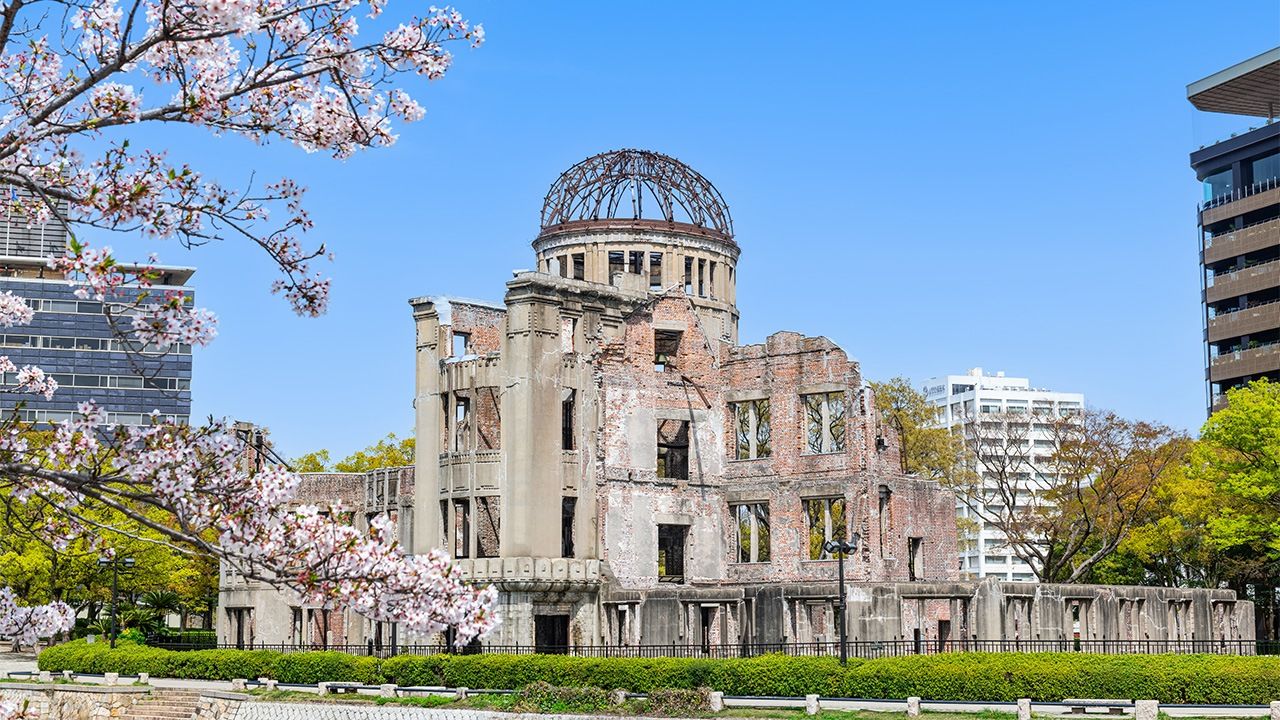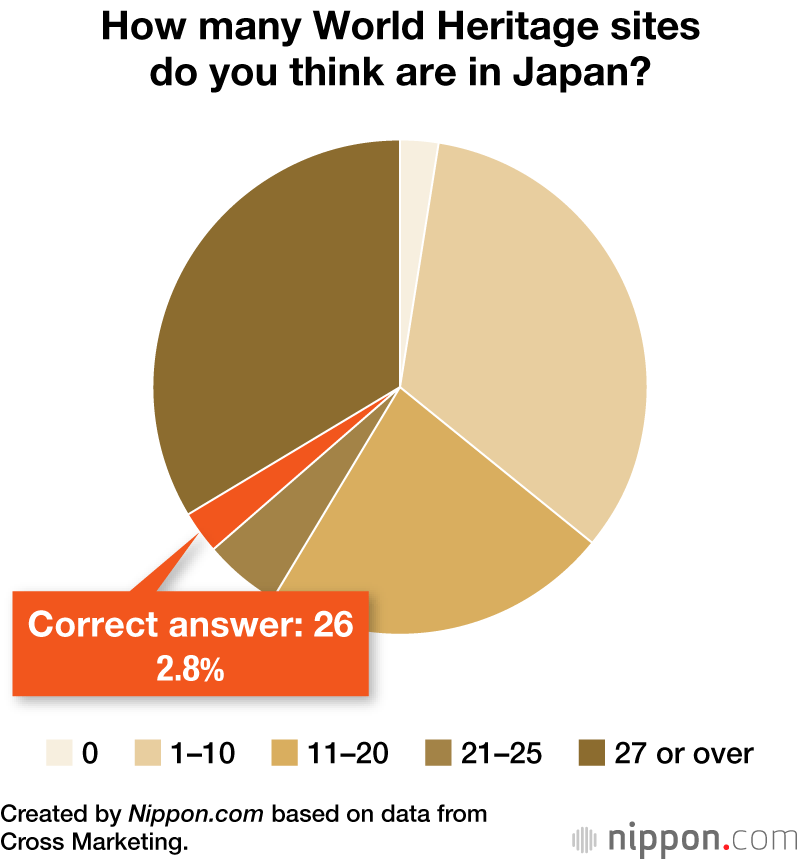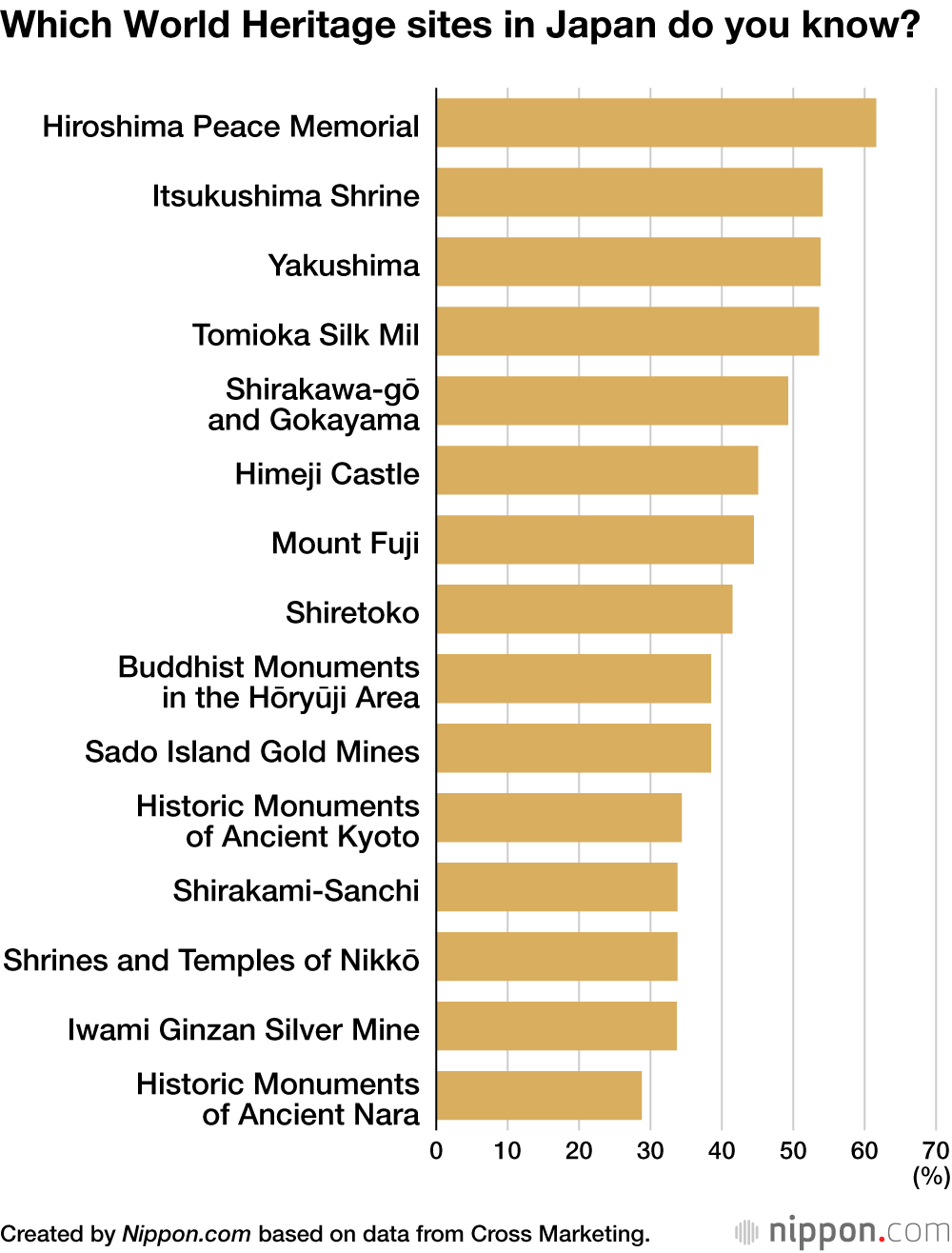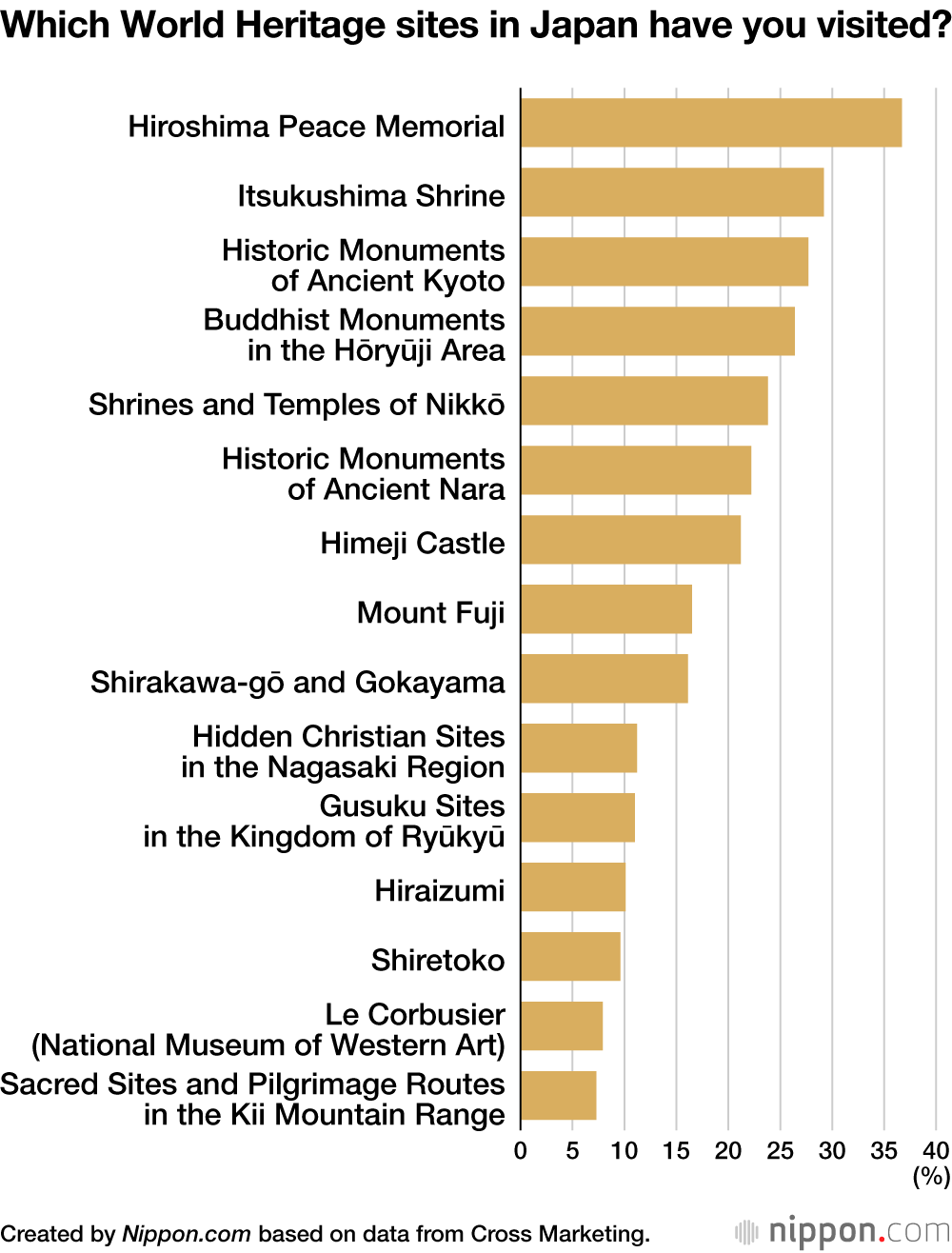
Japan’s World Heritage Sites: Hiroshima A-Bomb Dome Best Known Among Japanese
Travel Culture- English
- 日本語
- 简体字
- 繁體字
- Français
- Español
- العربية
- Русский
There are 26 UNESCO World Heritage sites in Japan, including 21 cultural and 5 natural sites. However, only 2.8% of Japanese respondents were able to give the correct answer of 26 when asked as part of a nationwide survey. Most respondents (63.7%) gave answers that were 25 or lower, and 2.6% said there were not any.
The survey was conducted by market research company Cross Marketing, asking people aged 20 to 69.
At 61.6%, the most well-known World Heritage site in Japan was the Hiroshima Genbaku (A-Bomb) Dome. Other sites that more than half of respondents knew were Itsukushima Shrine (54.1%), Yakushima (53.8%), and Tomioka Silk Mill (53.6%).
Although the Sado Island Gold Mines had only recently been added in July 2024, just 38.5% knew they were a World Heritage site. Of the 26 sites, the least well-known was The National Museum of Western Art, designed by French architect Le Corbusier (one component of many Le Corbusier works worldwide recognized by UNESCO), at 11.2%.
Overall, the ratio of people who knew the World Heritage sites increased with age.
The Hiroshima Genbaku (A-Bomb) Dome was also the most visited World Heritage site with 36.7%. This was followed by Itsukushima Shrine, Historic Monuments of Ancient Kyoto, the Buddhist Monuments in the Hōryūji Temple Area, Shrines and Temples of Nikkō, Historic Monuments of Ancient Nara, and Himeji Castle, all of which had been visited by 20% to 30% of respondents. Again, the ratio of people who had visited the sites increased with age.
The survey was conducted online in mid-March, receiving valid responses from 220 people in each age group from their twenties through sixties.
(Translated from Japanese. Banner photo © Pixta.)



